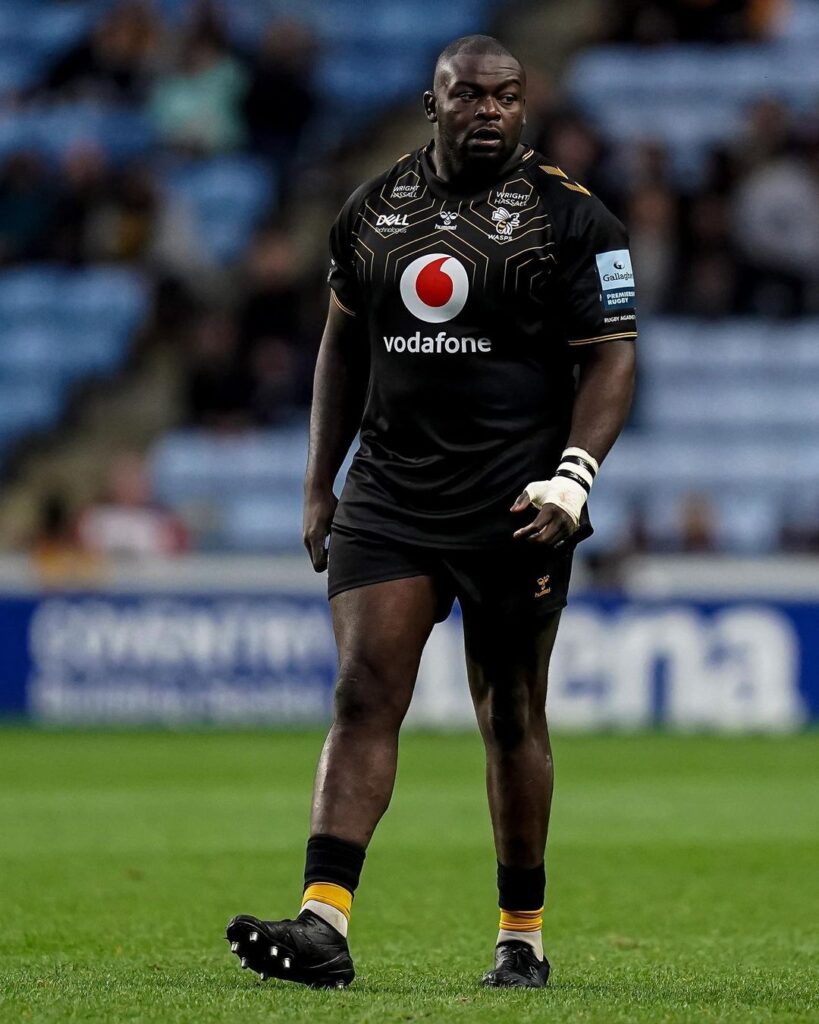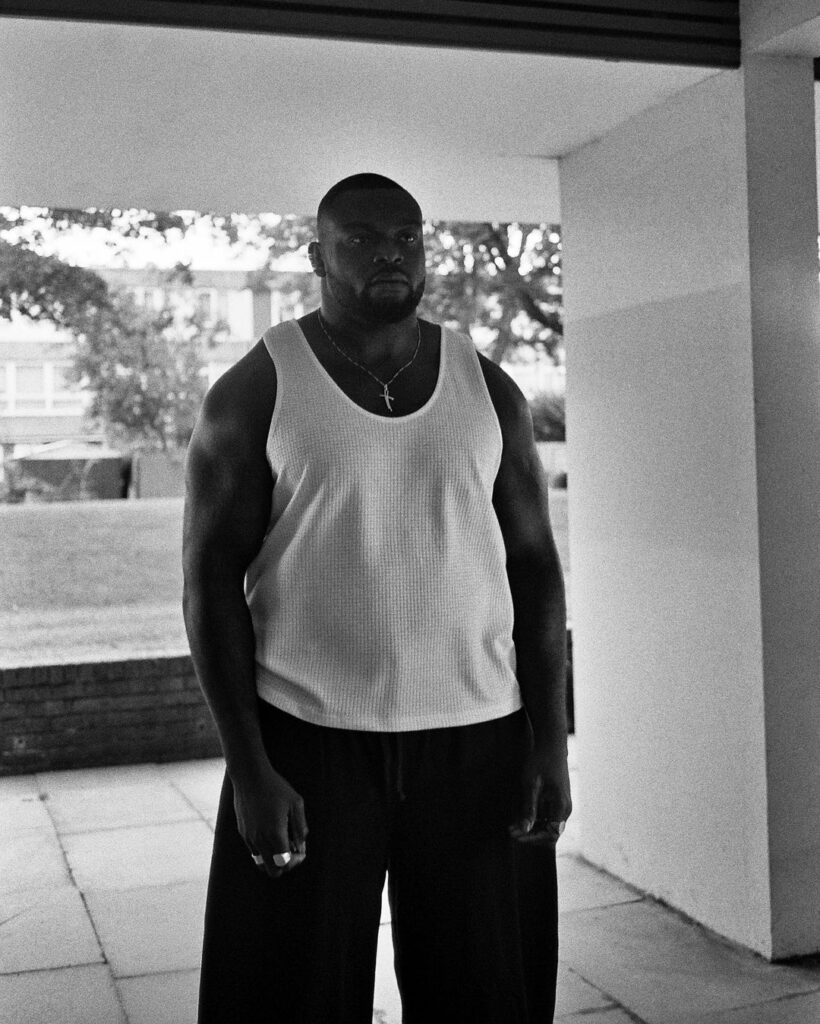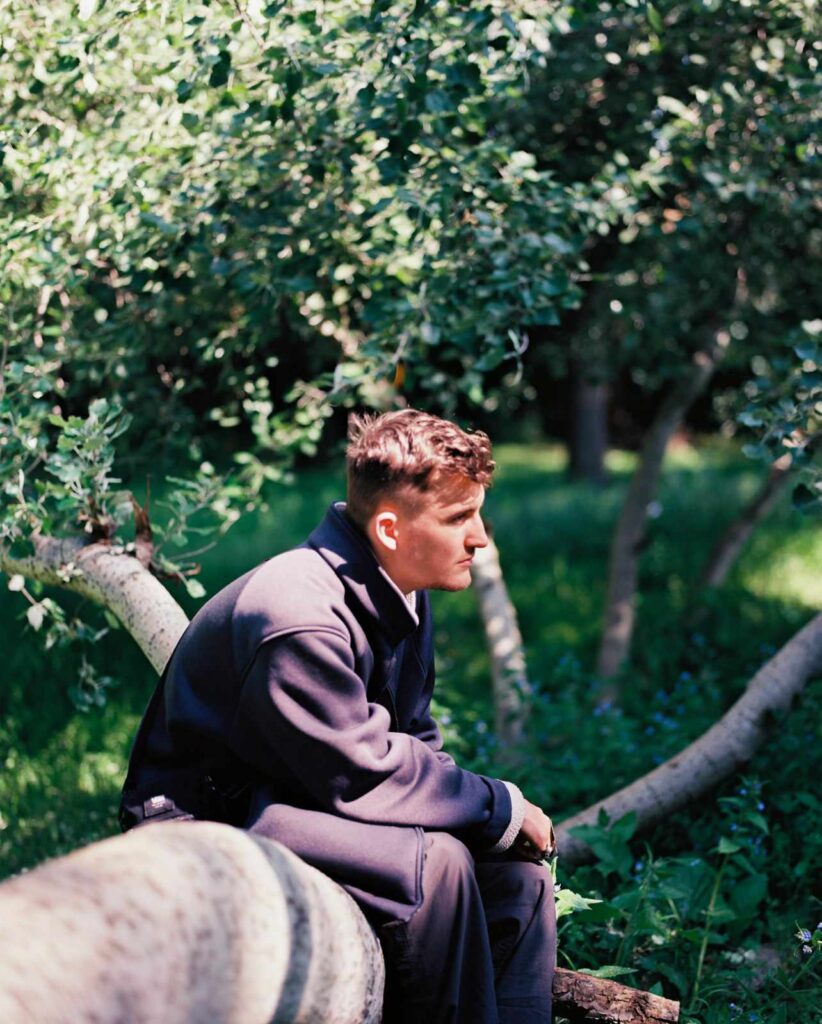From Good Intentions to Glass Soldiers: BIYI unpacks his poignant journey through growth and vulnerability
By Cameron Evans
Songwriter Spotlight: BIYI
London-based rapper BIYI has been lighting up the UK rap scene with a unique sound since self-releasing Good Intentions in 2018. At 6’2” and 20 stone, many wouldn’t see him as a likely candidate for introspective, love-laced explorations of relationships, masculinity, and personal growth. But his music is laden with equal measures of vulnerability and vitality. SoundSight writer Cameron Evans sat down with him to discuss his journey.
So, how we feeling? You’ve been back in the UK for a year after playing rugby in France. How’s it been for you and your music, being back?
I haven’t been back in Edgware [North London] since I left school. I got a scholarship through rugby to go to another school, so I went there, then uni, went professional from there, and was all over…
I’ve felt like a nomad for the last ten years. I feel like it’s come through in my music and relationships. I’ve been over-analysing and trying to see where everything’s going and not really knowing where my feet are landing.

Your latest drop Glass Soldiers is a good reflection of that – how was making that?
It all just felt very natural. We made it in a day. Everyone picked up an instrument, I went live on the BPM page and was just jamming. The melody and lyrics came to me – I had just touched down, so I was thinking about reconciliation.
I love it, and keep listening to it. It’s been received well and I feel like it’s a trademark me sound. It felt easy – the lyrics came flowing out, and it was very honest.
Some might stay in the same kind of lane and do it really well, and they’ve got their own imprint. And sometimes fanbases don’t get experimentation – like when Headie worked with Fred Again. But as an artist, I think it’s important that as long as your message and your core values continue to come through, you should be able to experiment and not feel like you’re losing listeners.
Yeah, there’s a kind of perceived duality there with Headie, and a wider point that applies to you – the duality of rugby vs music that you’ve pointed to on socials and in your art. But in a way that’s just your perception, because it’s all you.
Yeah, it can’t be duality if it’s all coming from the same vessel, can it? I’m living two different lives, but it helps. When I’m in the studio after training, I’m not thinking about rugby. I feel like if I wasn’t making music I’d be pent up, stressed, and it would seep out into some other area of my life. Without one or the other, I’d feel like a bird without wings.
The main struggle came from making songs and feeling like… who am I to put this out? I’m a rugby player kind of thing, you know? And I didn’t want to jeopardise rugby in any way, and was worried people in the rugby world would think I wasn’t taking rugby seriously. But this is earlier on, a couple years ago. I’m at home with it now.

So that’s a few years ago – around the time you linked with BPM, about 2020?
Yeah. I got introduced to Leo [Nankawa] through a mutual friend just before lockdown. We made Lovebow, and we’ve been rocking ever since – he’s a very pure guy. And the relationship has grown more recently – we’re gonna push a lot more this year, starting with Glass Soldiers. I’ve got loads of songs with [beatmaker] Jovan too, who I met last year. We got four or five songs ready, and we want to do a joint tape together.
Ultimately, everyone [at BPM] has the same pure intentions at heart, and everyone just wants to make stuff that connects people.

Before that, you were connected to [record label] Tenwest too, right? They sponsored the vision for the +33 film.
Massively. When I first spoke to the directors, we had a huge vision for it and it was overwhelming and daunting. You know when you’re explaining something to someone and you have a dream and don’t wanna sacrifice it just because you feel like you can’t do it. That’s where Tenwest helped.
Screening it [in November 2023 with BPM] was a nice time to see who supported face to face. That’s what I love, connecting people. And the more uncomfortable it feels to do something, the more you should lean into it, because we always try to feel safe. But the only thing that comes out the other side is growth.
And what do you think brought you toward that mentality of growth?
A pivotal moment in my life where I started realising what actually matters – the people right in front of you – not a facade, and not [doing] what you think your people think you’re meant to do.
Since then, I’ve been really in tune with myself. I spent a lot of years trying to work on myself, to understand myself and people around me.
I’m big on it, because I know I wasn’t always like that, and it was very detrimental to my life, my relationships. I thought you know what, it’s not worth trying to look a certain way that you’re not…
Make it matter. Make it mean something.
Yeah, and you’d been using that as a kind of defence mechanism beforehand.
Everything was a defence mechanism. I was bitter and angry at the world, and putting up a front of toxic masculinity. And I’m so not on that anymore.
And like me, your dad passed away young. Is that part of what made you feel that way?
Part of it might have started then. But it brings up questions that you never really thought you had to think about, because it’s just how you see life. You don’t realise what you have built up subconsciously that might be causing you to act a certain way. So it was really about breaking that down.
That’s why the music is so personal and so important to me. It’s about honesty and vulnerability, and you can’t be honest or vulnerable if you don’t know yourself first.




